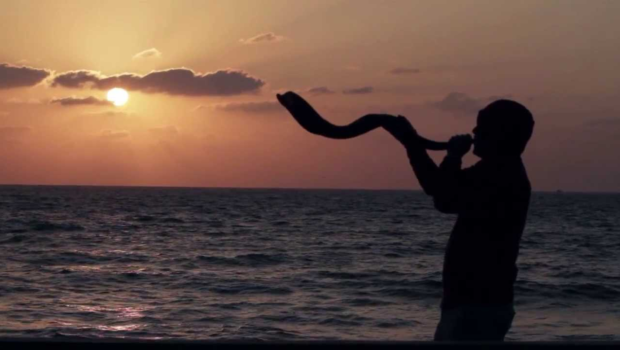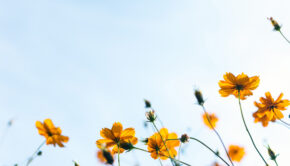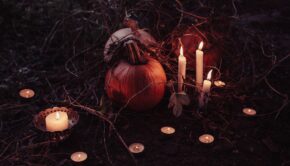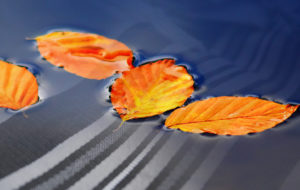Forbidden Fruit, Rosh HaShanah, and Our Climate Crisis
According to Hasidic traditions, the Tree of Knowledge of Good and Evil, from the story of Adam and Eve in the Garden of Eden, worked in a deeper way than we usually think about it.
It’s not just that after the eating of the fruit we humans could distinguish between good and evil. The test of “to eat or not to eat” kind of assumed that we had that ability already. What kind of a test would it have been if we couldn’t distinguish between good and bad? No, the real problem that came from eating from the Tree of Knowledge of Good and Evil was that we might know the right thing to do, but only know it in our heads: not really know it enough to change who we are and how we act. That is a curse that we are all living with daily.
This curse of the Tree of Knowledge feels very present in this moment when we stand at the brink of climate disaster. We all (or a lot of us) know that we have only a very short window of time to radically change our energy use. If we do not, we will be participating in the ruination of our planet, bringing about an era of famine, droughts, fires, mass migrations and war. We don’t even have to imagine it in our minds anymore— it’s already happening, and will only get worse.
Yet, what are most of us doing to change this situation? Not very much. Not enough. Some say that at this point only big actions can make a difference. It’s too late to be changing light bulbs. We need to be boycotting, sitting in, marching, protesting. And they have a point.
But even that may not be enough. When we want to change who we are and how we act in the world, such as we try to do as we approach Rosh HaShanah, we need to go back to the root of our problems. We must start to live in ways that embody a natural cycle of energy sustainability. We must re-learn the ways of being that our ancestors all knew to be holy: treating all that we have and use as gifts from a divine Source. Then our actions, even small ones, will start to change our consciousness and we will begin the necessary work of un-doing that curse of the Tree of Knowledge. We’ll learn again to know– not just with our minds, but with our bodies and our souls– that we are all connected and we all play our parts.
In my experience, even little life changes can help us to re-learn this sacred connection. I have been composting for years and as many composters will tell you, once you start it becomes hard to throw food scraps away into the garbage where they’ll end up in a landfill. It just doesn’t feel right. It feels like a profanation of the carbon-based molecules in my apple core to not return it to the earth where it can break down and become food for more life. I see that new life every time I go outside in the morning and pick some kale from the garden for my breakfast. The cycle of life is palpable, not theoretical.
Now, you might say this is a very small thing, and you’d be right. But notice that through my writing about it, thousands of people may now also be inspired to make similar small changes. If they do our culture may change, and we’ll inspire one another to make even bigger changes.
Am I guilty of “virtue signaling” by putting my composting up on the web and on social media? Perhaps, but in my opinion, the accusation of “virtue signaling”– advertising how virtuous you are on social media without really doing much to change the world– is mostly a tool in the toolbox of cynicism. If you have made a small change in the direction of living a sacred, sustainable life, I say be proud and tell everyone about it. Take a selfie of yourself biking, gardening, protesting, and share it on Twitter, Instagram and Facebook. Today more than ever, with social media, our small actions can sometimes trigger huge changes in the world.
This year, this critical year, as we approach our holy days, we need to re-examine our own personal Tree of Knowledge and see where we are knowing only in our heads, without translating that into body and soul knowledge that changes our actions. The crisis is real and it is huge, but instead of being overwhelmed by its proportions, let’s find the ways that we can begin to heal our relationship with the world one action at a time: composting, biking, gardening, car-pooling, buying locally, eating locally, eating less or no meat, using energy from the sun and the wind, joining with our communities to protest and raise awareness. Our actions can teach us through our hands and feet and hearts that we are all connected.
According to our sacred stories, human civilization was started by separating our knowledge from our bodies and souls and our essential connectedness to the earth and our Source. Perhaps we now need to create a new kind of civilization by remembering our original home on earth where we are all nourished by the Tree of Life. For our civilization and the earth to survive and thrive we’ll need to begin our journey back to the Garden of inter-connection and gratitude for all our gifts. Let’s start today. Let’s make this a truly blessed New Year.







4 Responses to Forbidden Fruit, Rosh HaShanah, and Our Climate Crisis